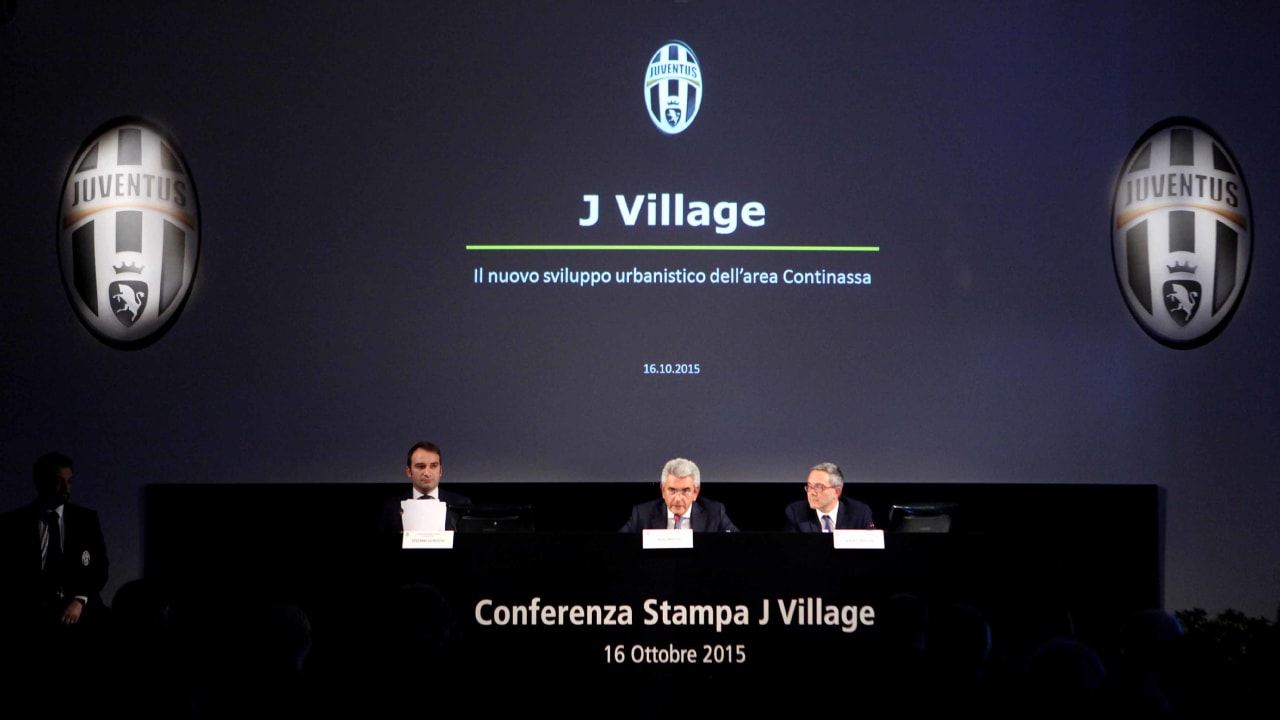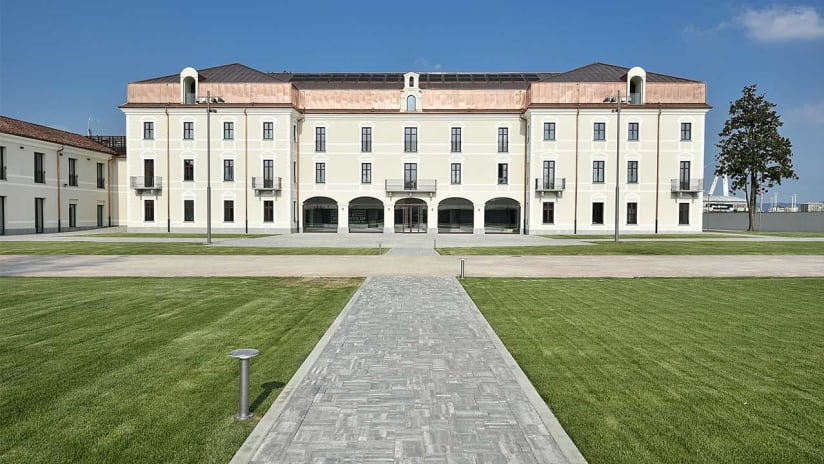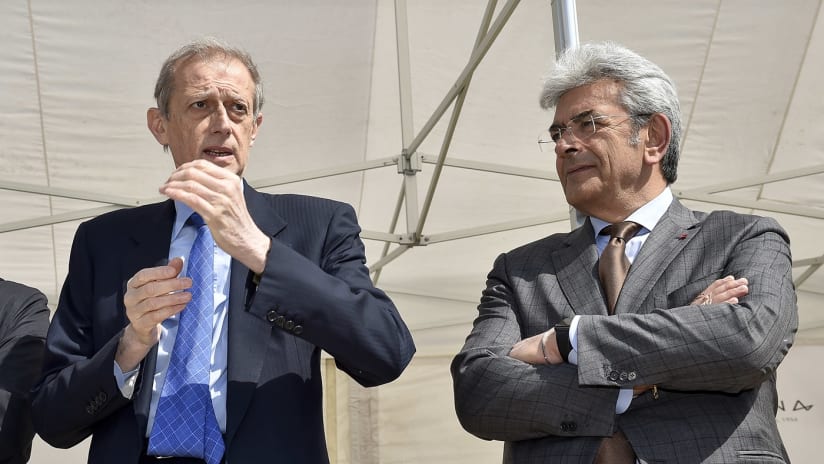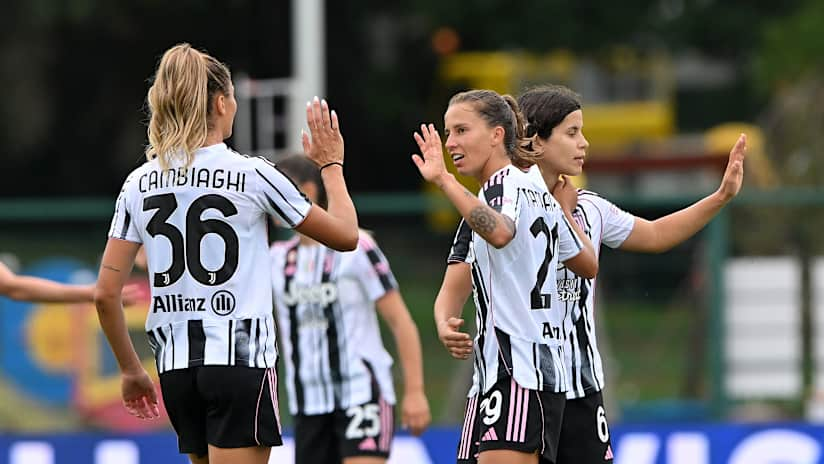01 November 1897
Fittingly, the project to redevelop and modernise the Continassa area was unveiled at Juventus Stadium. In the words of Chief Financial Officer Aldo Mazzia, it was the “next logical step."
This morning, Bianconeri CEO Aldo Mazzia revealed plans for J-Village during a busy press conference in the Gianni and Umberto Agnelli Club suite at the club’s state-of-the-art stadium: an arena which has welcomed 3.9 million spectators in the space of four years.
As Mazzia explained, the opening of the new centre alongside the stadium, dubbed “a big step forward” in Juventus history, will see an abandoned site redeveloped, whilst protecting the investment made over the last few years (€155 million).
It will also concentrate all of the club’s work onto a single site and contribute to the development of the city of Turin both in terms of investment (around €100 million) and resulting employment opportunities.
The CEO charted the key stages of the project from the site study in January 2012 to the conferral of 147,000m² in land rights to the J-Village Fund (which include 34,830m² in building rights).
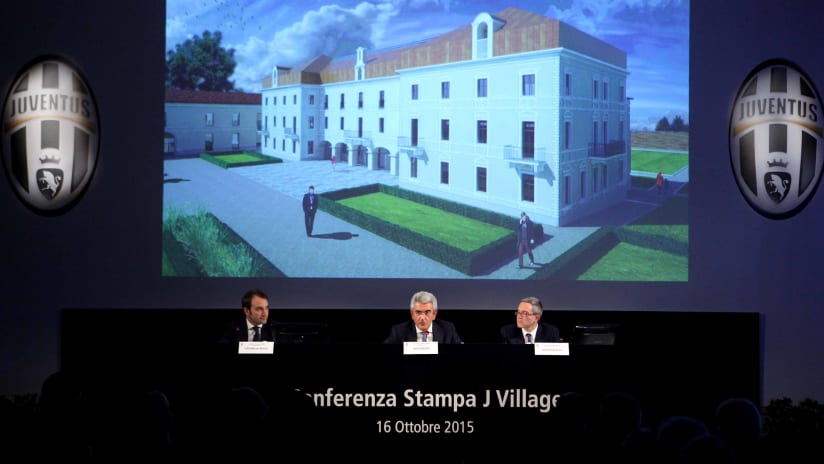
Today it was revealed that the new Juventus club headquarters can be based in the recovered building which was once the Continassa farmhouse. Construction work on the building to ensure its safety and structural viability began in August.
“The Stadium has become a benchmark for all of the other cities and teams in Italy,” commented Stefano Lo Russo, Minister for Urban Planning in the City of Turin, this morning.
“We see this second project as a massive achievement, a result of the excellent collaboration between the main actors in this process. The positive relationship between Juventus and the city has produced a project which will give this area of the city a new lease of life. This centre will become one of the heartbeats of Turin and a must-see tourist attraction for those visiting the capital of Piedmont.”
His speech followed a letter from Mayor Fassino, who pointed out that, thanks to J-Village, “the suburb is being given a new lease of life and will go back to being a fully-fledged part of our city. Investing in Turin and the surrounding area is a very positive message and an opportunity for everyone.”
Alberto Bollea then took the floor. The CEO of Accademia SGR S.p.A., a management and savings company controlled by Banca del Sempione S.A, was tasked with explaining how the project will be structured financially.
“Putting together a real estate fund means involving a series of investors, namely Juventus (who own the area and its rights) and the banks – Unicredit (50%) and UbiBanca (50%) for a total of €64.5 million.”
Bollea also detailed the timeframe of the construction work, stressing that the project “can respect its deadlines.”
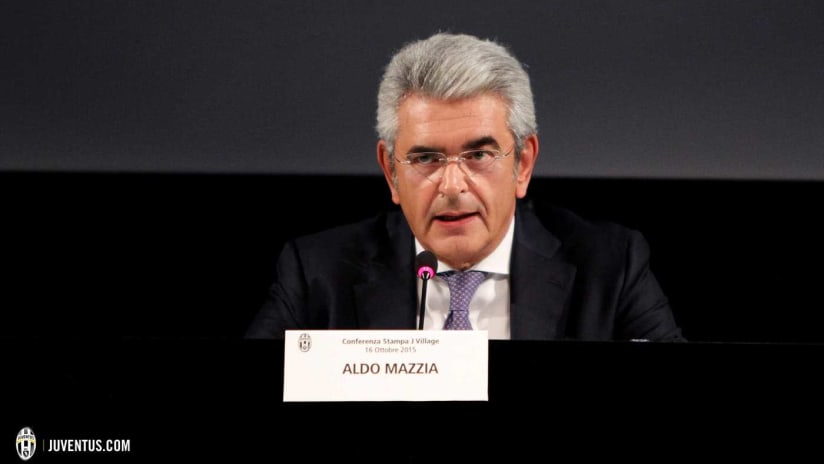
Construction of the JTC – which should be operable from Spring 2017 – and the work to secure the former farmhouse began in September 2015. Early 2017 will also see the conclusion of work on urban infrastructure and the concept store (work on the latter two will begin in March 2016), while the J-Hotel, school and new Bianconeri club offices will be completed come the summer of 2017.
The press conference then really got going, as Aldo Mazzia detailed the key tenets of the future J-Village.
The presentation began with an insight into the first team’s training facilities (JTC), which will also be able to accommodate a second side. This will occupy around 34% of the site’s total area and will comprise four training pitches, one of which will be artificial. The J-Hotel will be built alongside that, a park of 5,000m² surrounded by a 155-room hotel which will act as Juventus’ permanent base. The club will have access to 32 rooms, a restaurant, conference facilities and a relaxation area for the players and coaching staff. The other rooms will only differ in terms of size and will benefit from the flow of visitors to the stadium, museum, club headquarters (business travel) and its proximity to the Palace of Venaria, a very popular tourist site.
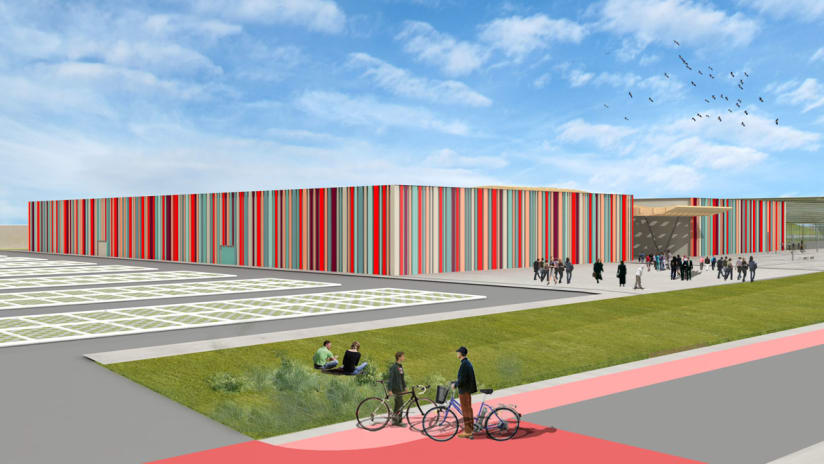
J-Village will also boast an international school (ISE) with an Anglo-Saxon curriculum. The institution will accommodate up to 600 students and be run by the International School of Europe, the organisation which is already running Juventus College at Vinovo for the second straight year.
The concept store will be another important addition to the site revealed this morning. The building is aimed at young people and families and includes a cutting-edge entertainment area, a restaurant and a retail section with annual visitor numbers forecast at 750,000 people.
Construction of J-Medical is already well underway. It is due to be opened in January 2016 and is not part of the J-Village site but will stand in one of the areas alongside the museum. J-Medical is a facility designed to house a centre for sports medicine and rehabilitation dedicated to the first team and academy and open to private patients.
Finally, the Bianconeri CEO unveiled plans for the urban infrastructural work which will accompany the project (including a new dual carriageway linking Corso Gaetano Scirea to Via Traves) and the Bosch/Iren power plant which will supply all of the building complexes.
He closed the press conference by thanking the numerous people involved in the project, thanks to whom J-Village will soon become a reality.

